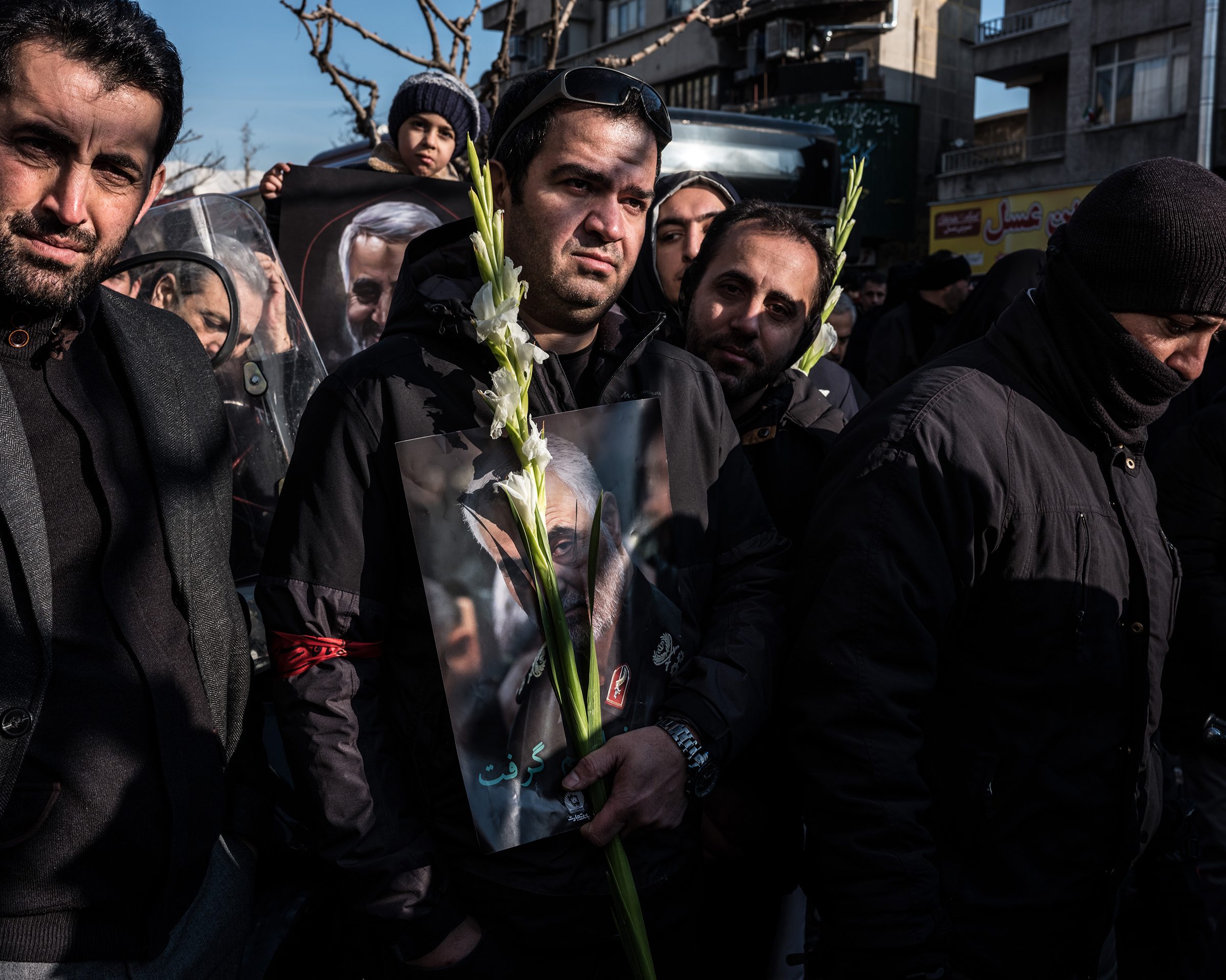
Before his death last Thursday evening, Qasem Soleimani was the most feared man in the Middle East. Iraqi, Lebanese, Syrian, Gulf Arab, and even Israeli leaders spoke of him with a combination of terror and respect unlike that shown to any other figure in recent memory. Iranians treated him with a degree of pride, even reverence, that was exceptional for a leader of the increasingly unpopular regime.
Soleimani deserved all of it. For 22 years he led the al-Quds Force, an elite unit of Iran’s Revolutionary Guard Corps responsible for exporting the Iranian revolution and securing Iran’s interests across the Middle East. Soleimani himself was simultaneously Iran’s chief military commander, chief diplomat, and chief aid administrator for the entire region. He held powers and responsibilities more like a Roman pro-consul than anything comparable in the American system.
He possessed a unique set of skills and relationships that were critical to Iran’s many successes over the past two decades. He was highly intelligent, decisive, and pragmatic. Those who worked with him—willingly or not—all noted his soft-spoken demeanor, his coolness under pressure, his quiet authority, and his ability to know how to make people offers they could not refuse or did not want to.
Because of his longevity, Soleimani had gotten to know—and know extremely well—the leaders and peoples of many countries across the Middle East. Yet few had his ability to read them and understand their ultimate motives, desires, and fears.
More than that, Soleimani came to understand the complex web of relations within and among the elites of these countries. That is far more difficult to do, and it was his ability to manipulate those opaque and tangled skeins that enabled him to consistently shape outcomes to Iran’s advantage. It is a talent that few, if any, Americans—or Israelis or even Arabs—have ever acquired. Soleimani mastered it.
It was Soleimani who effectively saved the Assad regime in Syria after 2012 by pushing Hezbollah to pitch in, building up local militias, then bringing in Afghan and Iraqi fighters, and finally convincing the Russians to intervene.
It was Soleimani who raced to Baghdad with several thousand Quds force advisors in 2014 when ISIS struck in Iraq to organize the defenses of the capital, stiffen the spines of the tottering Iraqi security forces, and convince Grand Ayatollah Ali Sistani to call on average Iraqis to aid their military in halting the (flagging) ISIS juggernaut.
It was Soleimani who brought in scores of Hezbollah military trainers to Yemen in 2015, when Emirati and government forces counterattacked and evicted the Iran-backed Houthis from Aden. Their experience, along with new rockets and missiles to threaten the Saudis, stabilized the front.
Under Soleimani’s leadership, the Quds Force devised a number of critical methods and strategies that have served Iran extremely well. They devised a method of building up friendly, indigenous militias and insurgency groups and embedding them within a larger community by providing security, services, goods, and funding to that community—what we now refer to as the “Hezbollah model.”
The Quds Force under Soleimani learned that providing large numbers of rockets and missiles to these groups created a powerful deterrent against attacks on the group itself, and then against Iran. Indeed, one of the most important reasons that Israel never struck the Iranian nuclear program was fear that Hezbollah would react to such a strike by firing at Israel tens of thousands of the rockets and missiles Soleimani had given them, in part for that purpose.
Finally, in the last five years, it was Soleimani who figured out how Iran could employ its different clients and conflicts in tandem against the United States and its allies—like supporting Yemeni Houthis to diminish Saudi support for Syrian opposition groups and later getting the Houthis to fire missiles at Saudi Arabia to counteract the American maximum pressure campaign on Iran.
No one had ever imagined doing this before, and while it did not always succeed, it was part of how Soleimani played Iran’s weak hand better than anyone ever imagined it could be.
Of course, Iran’s influence in the Middle East derives from more than just the abilities of Qasem Soleimani. Iran’s location in the region, its willingness to back virtually any group employing violence against the U.S. and its allies, its patient determination to keep trying no matter how many defeats it may suffer — all make Iran a formidable regional power even without Soleimani.
Moreover, his successors will benefit from his legacy. They now know how to employ the Hezbollah model. They now know how to play off the region’s many conflicts against each other. They will inherit the strong Iranian positions in Lebanon, Syria, Iraq, and Yemen that Soleimani built. For all of those reasons, his successors probably won’t need to do what he did because he did it for them.
All of this is why Soleimani’s death represents a potentially important tactical victory for the United States. Of course, it is still much too early to tell whether the Trump Administration can parlay that into a strategic victory, let alone avoid a strategic defeat.
More Must-Reads from TIME
- Cybersecurity Experts Are Sounding the Alarm on DOGE
- Meet the 2025 Women of the Year
- The Harsh Truth About Disability Inclusion
- Why Do More Young Adults Have Cancer?
- Colman Domingo Leads With Radical Love
- How to Get Better at Doing Things Alone
- Michelle Zauner Stares Down the Darkness
Contact us at letters@time.com